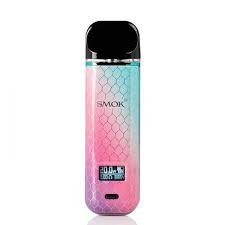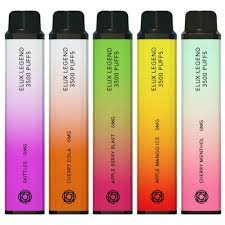How to Start a Waka Bar: Your Ultimate Guide to Success
Introduction
In recent years, the global cocktail scene has experienced an influx of innovative and vibrant concepts, and Waka bars are among the most exciting trends. With their emphasis on premium cocktails, high-energy atmospheres, and exceptional customer experiences, Waka bars have captivated both new and seasoned bar owners. If you’re dreaming of opening a Waka bar, this guide will walk you through every aspect of starting and growing your business—from the initial planning stages to attracting loyal customers.
Thank you for reading this post, don't forget to subscribe!What is a Waka Bar?
A Waka bar is a modern cocktail bar that serves up unique and flavorful drinks often inspired by tropical and exotic themes. The term “Waka” is derived from a blend of world-class mixology techniques and flavors from around the globe, offering a combination of exotic spirits, high-end cocktails, and a lively atmosphere. These bars typically focus on exceptional customer service, creative cocktail presentations, and an immersive ambiance.
While Waka bars vary in design and style, they share one common goal: to deliver an unforgettable experience where customers can unwind, socialize, and enjoy top-notch beverages.
Step-by-Step Guide to Opening a Waka Bar
1. Conduct Market Research
Before diving into the exciting world of Waka bars, thorough market research is crucial. Evaluate the competition in your area and assess the demand for a cocktail bar with an innovative twist. Identify your target audience—whether they’re cocktail enthusiasts, tourists, or partygoers—and tailor your offerings accordingly.
Key Questions to Ask:
- What are other bars in your area offering?
- Are there untapped niches or trends in the bar scene?
- What are the preferences of your target customers?
2. Create a Business Plan
A solid business plan is essential for any new venture, and starting a Waka bar is no exception. Your plan should include a detailed description of your concept, target market, menu offerings, pricing strategy, and marketing approach. Additionally, calculate your startup costs, such as rent, equipment, and staff wages, and estimate your projected revenue and profits.
Sections to Include in Your Business Plan:
- Executive Summary
- Business Description
- Market Research
- Menu Design & Pricing
- Marketing and Sales Strategy
- Financial Projections
3. Secure Funding
Starting a Waka bar requires significant upfront investment. From leasing the property to purchasing equipment and alcohol stock, costs can quickly add up. You may need to seek funding through loans, investors, or personal savings. Make sure to have your financial projections in place to show potential investors the profitability of your business.
4. Choose the Right Location
The location of your Waka bar will play a pivotal role in your success. Look for areas with high foot traffic, close to nightlife hubs, or in trendy neighborhoods that attract your target demographic. Consider proximity to other bars, restaurants, or entertainment venues.
5. Obtain Necessary Permits and Licenses
Starting a bar comes with a unique set of legal requirements. You’ll need to secure various licenses, including a liquor license, business license, and health permits. Research local laws and consult with legal professionals to ensure you’re compliant with zoning regulations, health codes, and liquor laws.
6. Design Your Bar’s Layout and Ambiance
The atmosphere is one of the key elements that set Waka bars apart from traditional bars. Focus on creating an immersive, visually appealing environment. This could include tropical-themed décor, cozy seating areas, vibrant lighting, and a modern, stylish bar setup. Don’t forget to include a functional and efficient layout for your bar staff to operate smoothly.
7. Develop a Unique Menu
At a Waka bar, the drinks are the star of the show. You’ll want to curate a cocktail menu that features exciting flavors, exotic spirits, and visually stunning presentations. Offer a combination of classic cocktails with a twist, signature concoctions, and a rotating list of seasonal specials.
Cocktail Ideas for Your Menu:
- Tropical Tiki Cocktails: Think pineapple, coconut, and rum-based drinks with bright garnishes.
- Signature Waka Cocktails: Use a blend of exotic spirits like mezcal, pisco, and vermouth for unique drink creations.
- Seasonal Specials: Incorporate ingredients that change with the seasons, like fresh herbs, fruits, and spices.
8. Hire a Talented Team
A skilled and passionate team of bartenders, servers, and managers is key to a successful Waka bar. Look for staff who are not only experienced in mixology but also enthusiastic about the Waka concept. Invest in training them to provide exceptional customer service and make each guest feel valued.
9. Market Your Waka Bar
To ensure a successful launch and sustained business, effective marketing is essential. Use both online and offline channels to promote your Waka bar. Engage on social media platforms like Instagram and TikTok to showcase your cocktails, events, and ambiance. Hosting launch parties or happy hours can also create buzz around your new bar.
Marketing Tips:
- Create a visually appealing Instagram page to share your cocktails and events.
- Offer loyalty programs or discounts for repeat customers.
- Collaborate with influencers to reach a broader audience.
- Use local SEO strategies to make your bar easy to find online.
10. Provide Exceptional Customer Service
Customer service should be a priority at your Waka bar. Go above and beyond to make each guest feel welcome and appreciated. A friendly, knowledgeable staff will help build a loyal customer base, and word-of-mouth marketing can be a game-changer for your business.
Challenges You May Face
Opening a Waka bar can be incredibly rewarding, but like any business, it comes with its challenges. Some common hurdles include:
- High Initial Costs: Securing a location and acquiring equipment can be expensive.
- Staffing Issues: Finding qualified staff, especially experienced bartenders, can be challenging.
- Competition: The bar industry is highly competitive, and standing out requires unique offerings and top-notch service.
However, with careful planning, creativity, and hard work, your Waka bar can thrive in this dynamic industry.
Frequently Asked Questions (FAQ) about Waka Bars
1. What is the average cost to open a Waka bar?
The cost to open a Waka bar can range from $100,000 to $500,000, depending on the location, size, and the quality of the design and equipment. This includes leasing, renovations, staffing, and initial inventory.
2. How long does it take to open a Waka bar?
On average, it can take anywhere from 6 to 12 months to open a Waka bar. This includes time for securing permits, designing the space, hiring staff, and marketing the opening.
3. What makes Waka bars different from other cocktail bars?
Waka bars stand out with their emphasis on exotic cocktails, immersive ambiance, and unique customer experiences. They often feature creative drink presentations and cater to a trendy, energetic crowd.
4. Can I offer food at my Waka bar?
Yes, many Waka bars offer light bites or tapas-style food to complement their drinks. The food menu can be designed to enhance the cocktail experience, offering items like skewers, sliders, and tropical-inspired dishes.
5. How do I attract customers to my Waka bar?
Attract customers by leveraging social media marketing, hosting special events (like live music or themed nights), offering promotions, and ensuring an unforgettable customer experience. Positive word-of-mouth and online reviews can also be powerful tools.
Conclusion
Opening a Waka bar can be an exciting and profitable venture with the right planning and strategy. By understanding your market, offering unique and high-quality drinks, and creating a memorable atmosphere, your Waka bar will stand out in the crowded nightlife industry. With the right approach, your business can become a hotspot for cocktail enthusiasts and partygoers alike.
This blog post has been optimized for SEO through the strategic use of keywords such as “Waka bar,” “cocktail bars,” “starting a bar,” and related terms throughout the content. The FAQ section also addresses key questions potential customers or business owners might have, making it more likely to appear in search results.






